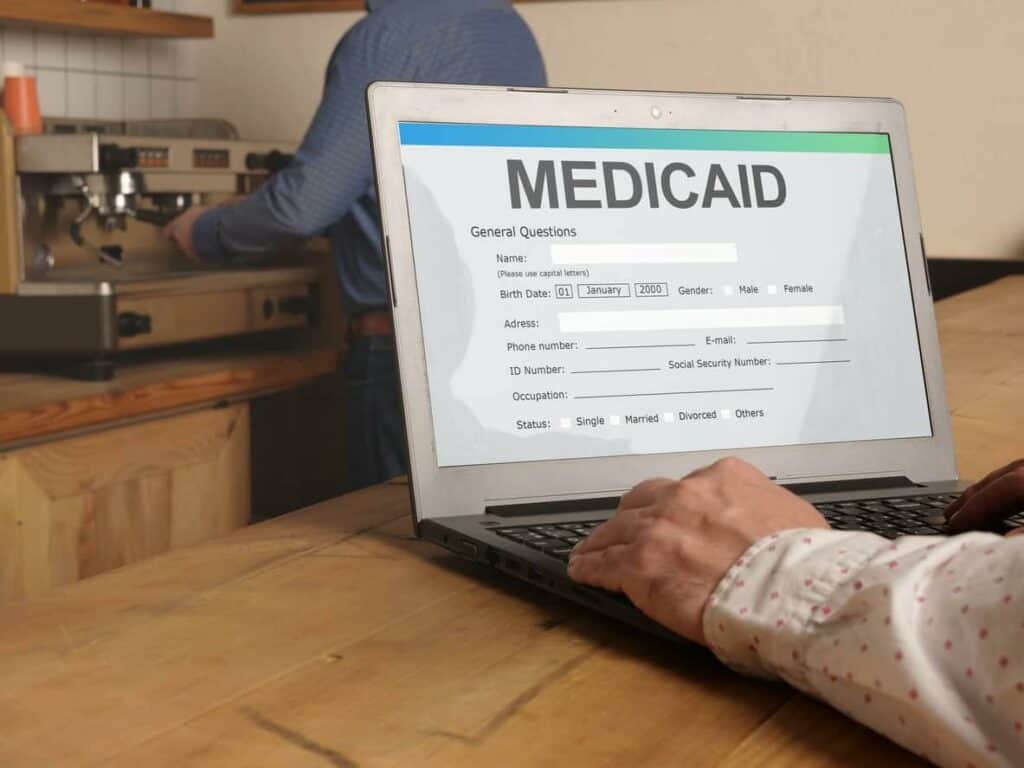Family Survey
Family Survey Please share your honest feedback to help us improve the care and safety of your loved one.

Paying for senior care can take a toll on family members and their loved ones. One way to alleviate the financial burden of senior care costs is government-funded programs such as Medicaid.
If you’re considering assisted living as a senior care option for your loved one, it may be possible for Medicaid to help cover some costs.
In this article, we go over vital things to keep in mind when it comes to Medicaid assisted living. This way, you’re better prepared to plan and budget for your loved one’s long-term care.
Medicaid, enacted in 1965 is a government healthcare assistance program for individuals with low income and limited assets. It receives financial support from both the federal government and individual states.
The federal government sets the guidelines for how each state disburses its Medicaid funds; however, states have the power to set their policies regarding who is eligible for Medicaid benefits.
Medicaid can help fund long-term senior care options including assisted living.
Assisted Living offers a home-like environment for older adults who need support with activities of daily activities such as bathing, grooming, and eating, to continue to live independently.
In addition to support with activities of daily living, assisted living homes also provide meals, housekeeping, laundry, medication management, and recreational services for residents.
Caregivers are available around the clock to assist residents and provide companionship.
Some of the services provided by assisted living communities may be covered by Medicaid. It’s important to find assisted living communities that accept Medicaid if your loved one is eligible, as not all assisted living communities may accept it.
Keep in mind that the term “assisted living” may not be used by all states. Other common terms used include personal care home, residential care, and adult foster care.
Although Medicaid covers some assisted living costs, what it covers may vary from state to state as each state has its policies.
Currently, 43 states and Washington D.C. offer some level of financial assistance to elderly individuals in assisted living settings. It’s important to learn about eligibility requirements specific to your state and the extent of Medicaid coverage.
Here are vital things to keep in mind about assisted living Medicaid.

Many states offer Medicaid programs that can cover assisted living expenses such as 1915c Medicaid HCBS Waivers (Home and Community-Based Services) which is most common.
The amount of coverage for assisted living expenses will depend on some factors such as:
Medicare will cover:
Other services covered may include transportation and recreational activities.
However, Medicaid will not pay for room and board in an assisted living facility. Some states offer cash assistance programs like the optional SSI State Supplement (OSS) administered by the Social Security Administration (SSA) or the Department of Human Services (DHS) to help cover room and board costs.

Medicaid waivers typically include coverage for dementia care or memory care services for residents in assisted living facilities.
Dementia care provides long-term residential support to older adults suffering from cognitive impairments caused by different forms of dementia including Alzheimer’s, Vascular dementia, and Lewy Body Dementia.
This coverage ensures that low-income older adults suffering from dementia can get the adequate support they need to lead a quality life.
Medicaid won’t pay for State assisted living because your loved one requires assistance. Seniors must qualify and meet some financial and functional criteria for them to be eligible for assisted living covered by Medicare.
To receive Medicaid benefits, you must meet some financial requirements which is a combination of both income and assets. The financial requirement may also differ depending on whether your loved one is applying for the HCBS Medicaid Waiver or the State Plan Medicaid.
For the State Plan Medicaid, the income limit is $1,215 per month or 100% of the Federal Benefit Rate which is $914.
For the HCBS Medicaid Waivers, the income limit is $2742 per month. Asset for both Medicaid Programs is limited to $2,000.
Keep in mind that being over the income/asset limit doesn’t mean automatic disqualification. Expert Medicaid Planners may be able to help your loved one restructure their finances to meet the eligibility criteria.
See this page for a detailed state-by-state eligibility criteria.
Other than the financial requirement, your loved one must meet some functional needs such as the assisted living services provided by Medicaid. Some states require that applicants must require assistance with at least 2 activities of daily living.
Other Medicaid programs may require that functional needs be less than the care needs provided in a nursing home. It’s best to find out what functional need criteria are in place for your loved one’s state.

Your loved one must be resident in the state they want to apply for Medicaid assisted living. You can help your loved one apply by contacting their State Medicaid Office. Medicaid has specific enrollment periods, but they accept applications at any time within the year. You can apply in person, online, via email, or the phone.
You’ll need to provide the following documents:
Once you are accepted and begin to receive Medicaid benefits, you must recertify that you’re eligible to continue receiving benefits. Most states require recertification every year. If your application is denied, you can appeal or reapply.
Medicaid benefits may not be accepted by every assisted living facility; those that accept it may have limited beds catering to Medicaid-funded residents. While some facilities may not accept Medicaid, they may allow outside caregivers to offer support for residents receiving Medicaid benefits.
To find assisted living that accepts Medicaid, reach out to your State’s Medicaid Center, or your Local Area Agency on Aging Office. These professionals may be able to point you to assisted living residences that accept Medicaid.
If your loved one isn’t eligible for Medicaid assisted living, or their application is yet to be approved, there are a couple of ways you can pay for assisted living costs.
This is for qualified veterans and surviving spouses. The Department of Veteran Affairs offers an Aid & Attendance Benefit to help cushion the cost of assisted living.
This benefit can be used in any state-licensed care facility and provides up to $2,200 for a veteran and their spouse, or up to $1,900 for a veteran without a dependent.
However, your loved one still has to meet some financial and medical eligibility to qualify. You can visit your local VA center or the VA website.
If your loved one has long-term care insurance, this may help pay for some assisted living expenses. Typically, long-term care insurance policies can cover:
These include out-of-pocket pay such as:

Finding the best senior care service for your loved one can be an overwhelming process. However, if your loved one doesn’t qualify for Medicaid assisted living, other senior care arrangements that may be covered by Medicaid can be helpful.
They include:
Some other Medicaid programs that may offer financial assistance outside of assisted living include Money Follows the Person and The Program of All-Inclusive Care for the Elderly (PACE).
Money Follows the Person Medicaid Program may assist your loved one to move out of facilities like a nursing home into their own home or other living arrangements.
PACE offers medical and social services to eligible seniors. Coordinated care is delivered through an interdisciplinary team of healthcare professionals to participants in their homes.
If you’re looking for assisted living services to support your loved one to thrive and enjoy their golden years, Amy’s Eden is here for you and your beloved senior.
Our premium assisted living homes in Carson City, Reno, and the surrounding areas, are the ideal home-like environment that guarantees quality care and safety.
With just 2-3 residents per home, our compassionate caregivers offer personalized services tailored to fit the needs of your loved one. Contact us today to learn more about how we can
provide your loved one with much-needed support.
Get care >
Family Survey Please share your honest feedback to help us improve the care and safety of your loved one.
Professional Senior In-Home Care in Carson City Keep your loved one in the comfort of their cherished home. Amy’s Eden delivers exceptional senior care services

The Best Home Care in Reno, NV The comfort of your home, the quality of Eden. We provide compassionate, professional in-home care services for seniors
A Real Home for Assisted Living in Carson City, NV Give your loved one the exceptional, personalized care they deserve. Our senior care homes in

Amy's Eden Senior Care © 2023